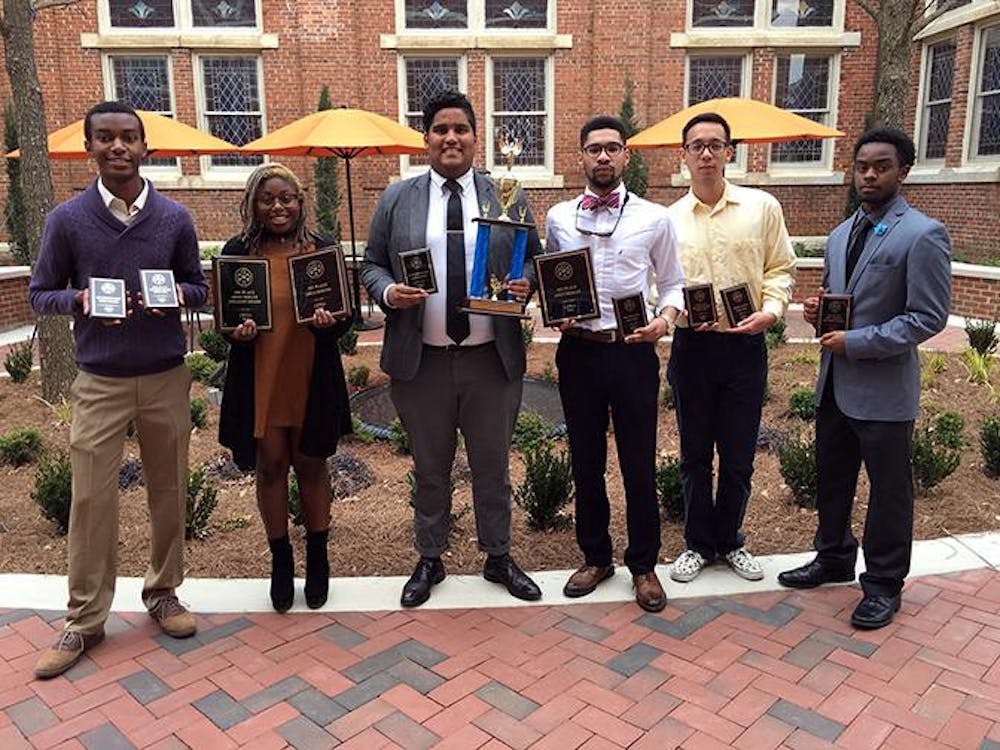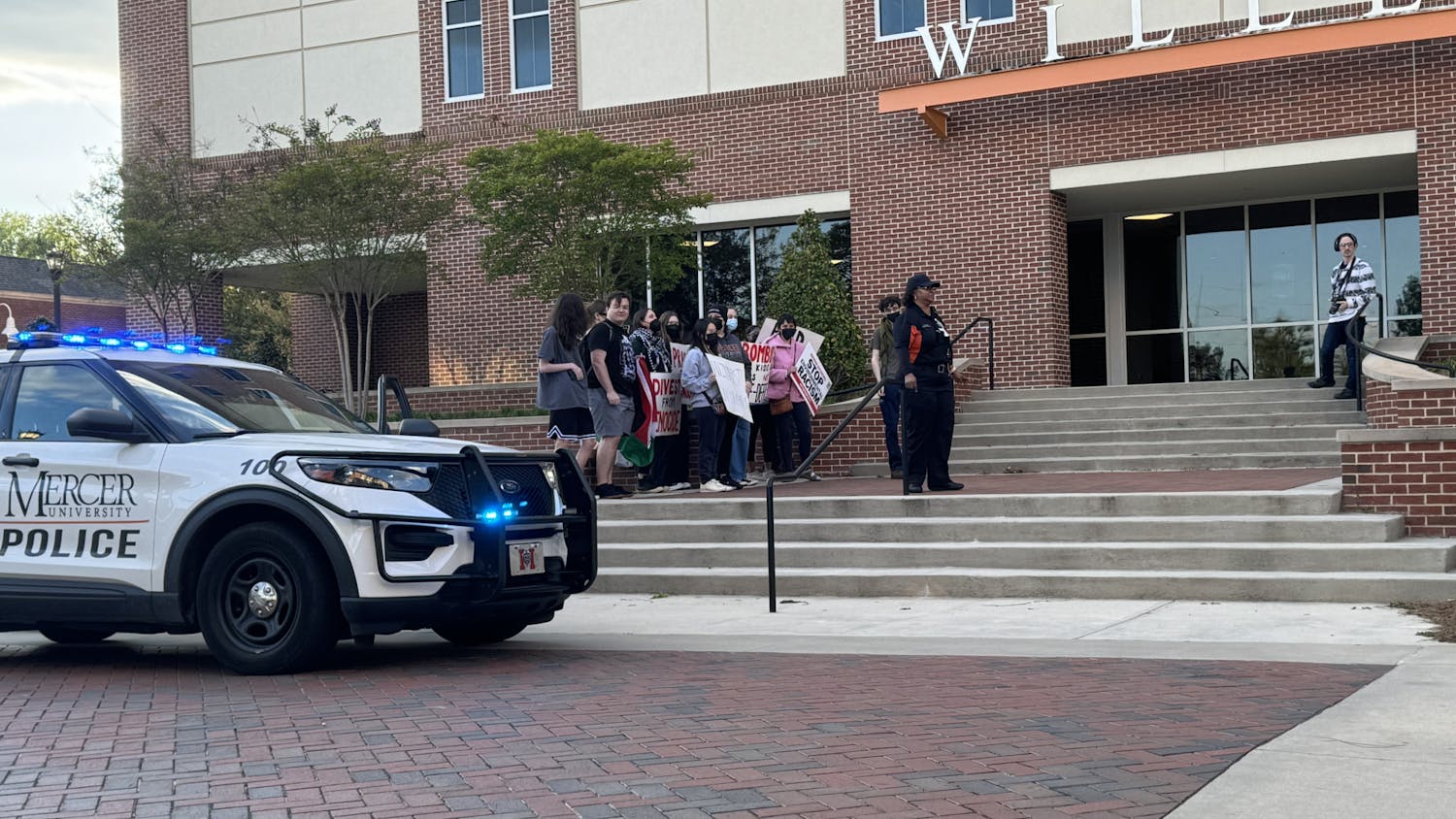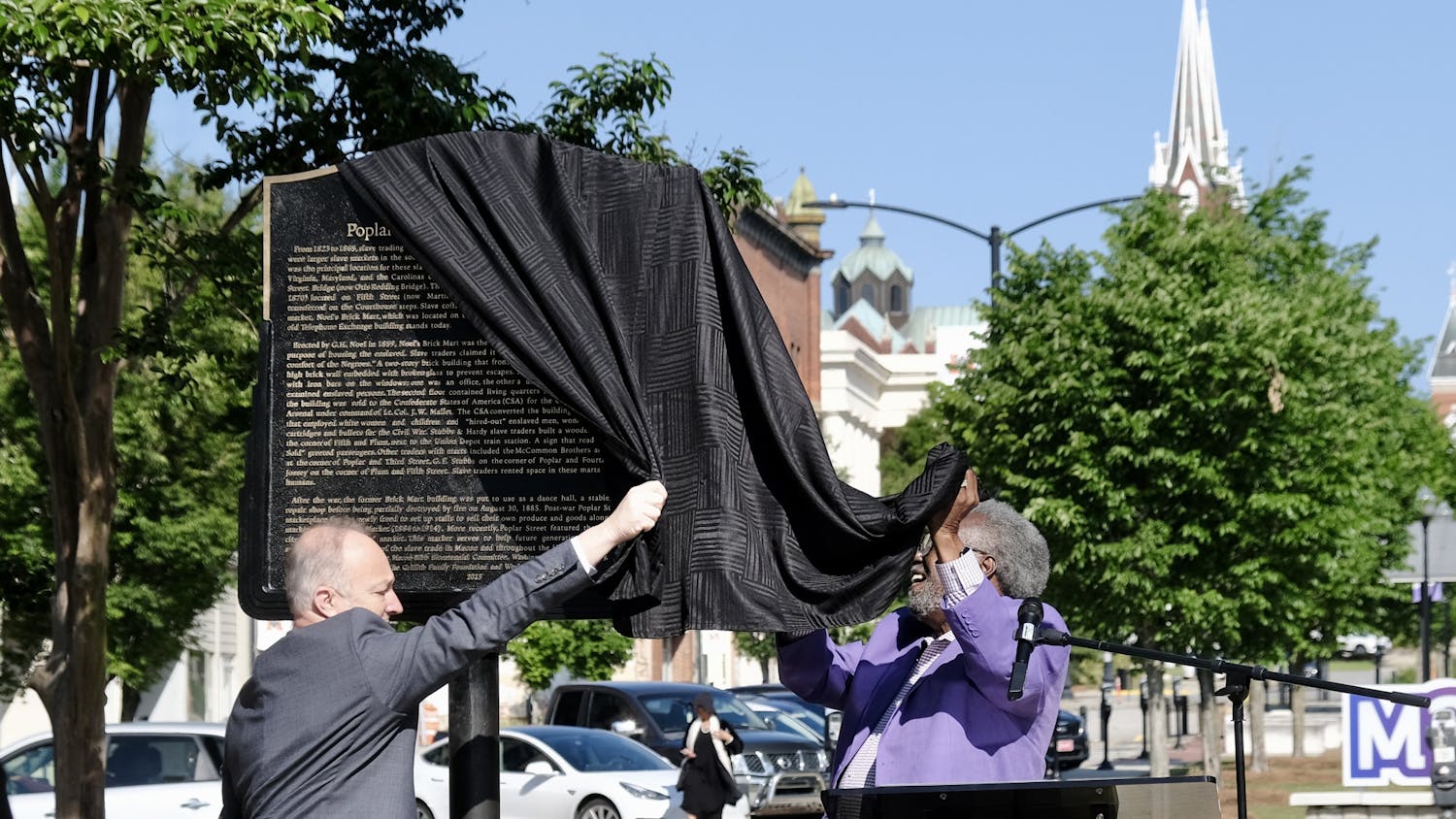The Mercer University debate team is off to a great start this season. In their most recent competition at the University of Georgia, they made it into the final rounds of the Georgia, British, and International Parliamentary Debates.
They were the only institution to do so, according to a Mercer press release.
“I want you to reiterate over and over that we got second,” said Kyle Bligen, junior, co-captain of the team and finalist in the National Parliamentary Debate Association (NPDA) and World Schools Style (WSS) competitions at University of North Georgia. “We get first so often that sometimes [people outside of debate team] do not understand the validity of certain victories.”
At first, what motivates someone to willingly participate in organized verbal duels with others for fun may not be clear. For Garrett Williams, a sophomore competitor in the WSS elimination rounds at UNG, debate is an “outlet to learn about different ideas as well as express ideas.”
His teammate, Keanu Lowo, a sophomore and qualifier for the NPDA quarterfinals, views debate in a different light.
“I think the actual trips themselves are one of the most fun aspects of the tournaments . . . though when we do win, that’s pretty fun as well,” Lowo said. “We get to go in there and talk about why the other teams’ arguments don’t make sense.”
Jazz Buckley, the team’s other co-captain and finalist in the NPDA and WSS competitions, started debating in high school because she wanted to be a lawyer. She did not expect to do well when she first entered, but Buckley competed on a national level before ever debating collegiately.
“I continued in debate because I generally like the community of people who like to talk about the things I like to talk about,” she said. “They push me to learn more, and to understand more about things that I would not usually be interested in.”
Debate team is not just winning or travelling to different cities, the team said.
It requires a lot of work, and is often misunderstood by those on the outside. Lowo said he recognizes this.
“A lot of people often ask what it is the debate team actually does,” Lowo said. “We, more or less, debate about current events and real world topics . . . the things that you see in the news.”
The potential topics for discussion are virtually endless.
“[We debate about] any social issue. I will say this: Black Lives Matter has been debated, and whenever we debate that, we do not come in second,” Kyle Bligen said. “Anything to do with economics, we debate that . . . ISIS, the federal government, we debate that a lot.”
The team agrees that their coach, Professor Vasile Stanescu — who they affectionately call “Vas” — is essential to their success and unity.
“It was my freshman year, and I was actually taking a class with Vas. He said, ‘Come out to practice. See if you like it,’” said junior Kevin Lee-Alston, a team member who advanced to the International Public Debate Association elimination rounds. “It was a great experience.”
Taylor Cole, a freshman who has only been a part of the team for a few weeks, said she had a rough start to the year.
“I didn’t do as well as I had hoped at UNG . . . [Vas] wasn’t mad,” Cole said. “He just reinforced that it was okay, and that it was a learning experience.”
This not at all surprising considering Vas’ coaching philosophy.
“The way I explain coaching debate is like teaching the honors program,” Vas said. “It’s the best part of my job; I get to hang out with some the smartest people I know and talk about things we care about.”
The team says that their coach drives the van, buys the team Taco Bell and is always encouraging. According to them, he is never harsh and always helps his team members discover and pursue their passions.
Bligen sums up the team’s sentiment in a phrase: “There is no other coach in the nation like Vasile Stanescu.”
Debate team shines in recent competitions

Mercer Debate team shows off trophies from 2015-2016 season.




